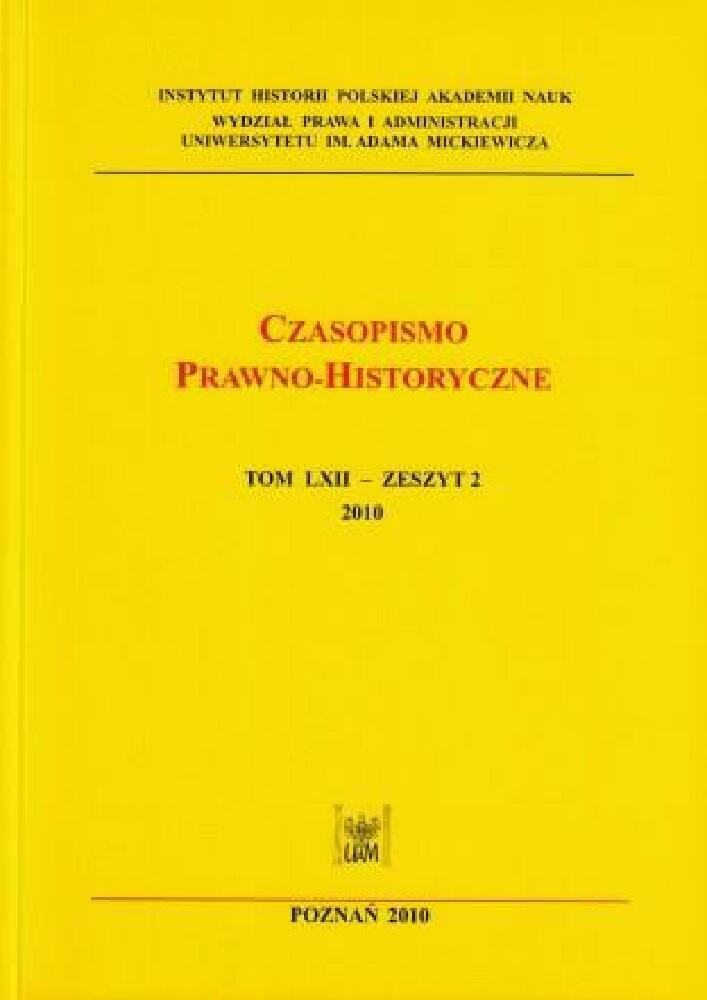Abstrakt
The beginnings of the presence of the followers of Judaism in Poland date back to the first half of the 11th century when the first Jews settled down in Kraków. In the coming years the Polish-Lithuanian Commonwealth became the largest concentration of Ashkenaz Jews in Europe. The 16th and the first half of the 17lh centuries are considered the "golden age" of Judaism in the territory of Poland, although the foundations of their legal status in Poland were already laid down in the Calisian statute issued by duke Boleslav Pius in 1264. From the second half of the 16th century until 1764 the 3-tier Jewish autonomy in Poland was based on kahals.
During the Partitioned Poland the followers of Judaism became gradually emancipated in terms of legal and social status, but the differences in their position under three different controlling powers became more pronounced. Whereas in the territory of the Kingdom of Poland the reforms were of the most durable character, in Russia, legal discrimination of the followers of Judaism continued until 1917. After World War I their legal status in Poland was determined in the decree of 1916 issued by Warsaw governor general Hans von Beseler, which granted the Jewish Religious Association a status of a public law corporation of a compulsory nature. By 1928 the binding powers of that decree had been extended all over Poland, save for the Silesian province where the former Austrian and Prussian legislation still prevailed. After World War II the activity of the Jewish Religious Association was not resumed. The status of the followers of Judaism was later regulated by amendments to the law on associations implemented in 1949. It was not, however, until the Freedom of Religion and Conscience Act of 17 May 1989 that the Jews' legal status had significantly improved. The subsequent Act of 20 February 1997 regulated the relation between the State and the largest Jewish organisation in Poland, the Union of Jewish Communities. The Act provides, inter alia, for the restitution of Jewish property.
The followers of Judaism in Poland today enjoy the best ever legal status in their history in the Polish territories.
Finansowanie
Digitalizacja sfinansowana przez Ministra Edukacji i Nauki w ramach umowy nr BIBL/SP/0002/2023/1
Licencja
Copyright© 2010 Wydział Prawa i Administracji UAM w PoznaniuOPEN ACCESS




